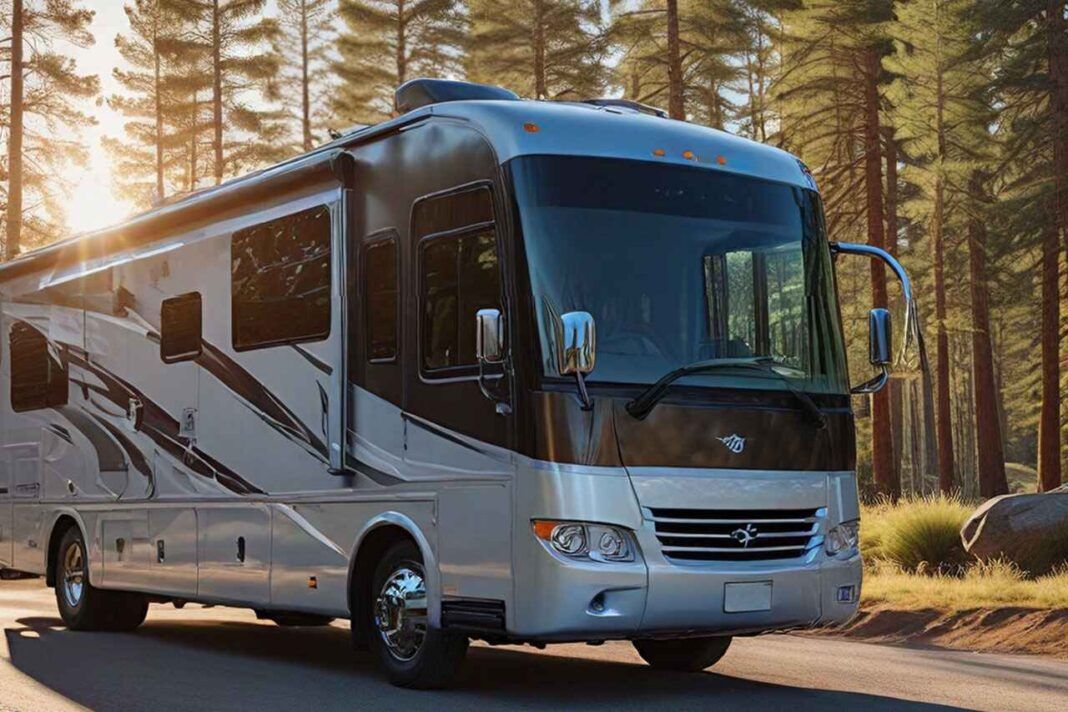Shopping for an RV without a down payment can seem challenging. But these days, many lending agencies make it possible for one to purchase their desired RV without making any upfront payments. Some banks offer RV loans without any money down, making it easier for potential buyers to get 100% finance on new or used RVs. But to avail of this benefit, it is important to check the eligibility requirements to avoid any surprises later.
Tips to Get RV Loans Without Downpayment
While it is possible to get an RV loan without making any upfront payments, one should carefully consider various factors like one’s credit score, payment history, and credit utilization ratio, as well as research and compare multiple loan options to make a financially sound decision.
1. Know about creditworthiness
Before contacting any bank or lending agency offering no money down RV loans, borrowers must take some time and examine their creditworthiness. This is a crucial step because credit score is one of the important factors lenders evaluate whenever a customer contacts them. A borrower’s credit score helps the lenders determine their likelihood of repaying the loan, offering peace of mind knowing that their money is safe with the borrower.
Customers with a high credit score often benefit from quick loan approval. Moreover, a good credit score motivates lenders to offer a low-cost or no-cost loan to such customers. Conversely, if the credit score is poor, a customer might face multiple challenges to get a loan, including –
- Lenders might deny a loan without any down payment.
- The lending agency might offer a zero down payment loan but demand a high interest rate.
- The loan terms may be stricter.
For borrowers with a low credit score looking for zero down payment RV loans can follow certain tips to boost their credit score.
- Pay bills on time –An individual’s payment history can significantly impact their credit score, accounting for nearly 35%. So, to maintain a clean record, one should avoid missing deadlines and always pay before the due date.
- Maintain a 30% credit utilization ratio – The credit utilization ratio is the percentage amount of the total credit used by an individual against their total available credit. This is a key contributing factor to one’s credit score. A credit utilization ratio of 30% or lower is generally associated with a good credit score. But if an individual’s spending is high, they can ask for a limit increase to improve their credit score.
- Avoid new hard inquiries – Soft inquiries don’t impact the score. But hard ones can lower it. Examples of hard inquiries include new credit cards or loans. While one or two new credit cards may not cause significant problems, multiple new cards will negatively impact one’s credit score in a short time.
- Keep old accounts active – Customers must consider retaining their old accounts even if they don’t use the credit cards. Keeping these accounts active lengthens one’s credit history and contributes to a favorable credit score.
- Consolidate the debts – If one has several debts, a consolidation loan may help. Contact a credit union or bank and request for a debt consolidation. This allows for one monthly payment instead of many, making it easier to pay off the smaller loans. Further, one can negotiate a lower interest rate to pay loans faster, improve credit usage, and raise one’s score.
2. Trade in the existing RV or automobile
If one already owns an RV or another vehicle, one can consider trading it in while shopping for a new RV. This helps reduce the loan amount needed to purchase their new automobile. Moreover, it also helps customers receive better terms.
3. Research and compare options
These days, many lending agencies provide used RV loans with no down payment. One can find such options online and offline. So, while the first loan offer may seem tempting, never settle for it. Take some time to research and explore different options. This will give the interested customer an idea of the prevailing market rate. Moreover, having an offer or two in hand makes it easier to negotiate and bag a better loan term. Thus, always take the time to examine the loan terms and specifics from every dealer to determine who offers the most lucrative offer.
These days, several dealers give priority to pre-approval. So, after comparing the offers, seek a pre-approved loan from the lending company.
4. Consider having a co-signer
The borrower can approach a friend, family member, or colleague to be their co-signer to streamline the process of securing a better loan deal, but they must first ensure that the individual they opt for has a better credit score. A co-signer with a higher credit score can increase the probability of obtaining a loan offer with no down payment and a lower interest rate. But, borrowers must ensure the co-signer is well-acquainted with the loan terms before bringing them on board, as they will be responsible for payments if the borrower defaults. This clarity can help avoid misunderstandings or conflicts in the future.
5. Look for alternatives
Despite trying these options, if one is still unable to get an RV loan without a down payment, then they can consider alternatives like flexible payment plans or opt for affordable RV models. Additionally, given the country’s strong leasing market, customers can also choose to lease an RV. If an individual has an existing RV, they can continue using it for a longer period as this gives them time to improve their credit score and savings, which will benefit them when purchasing a new RV later on. This option can be considered if there is no immediate requirement for a new RV.
